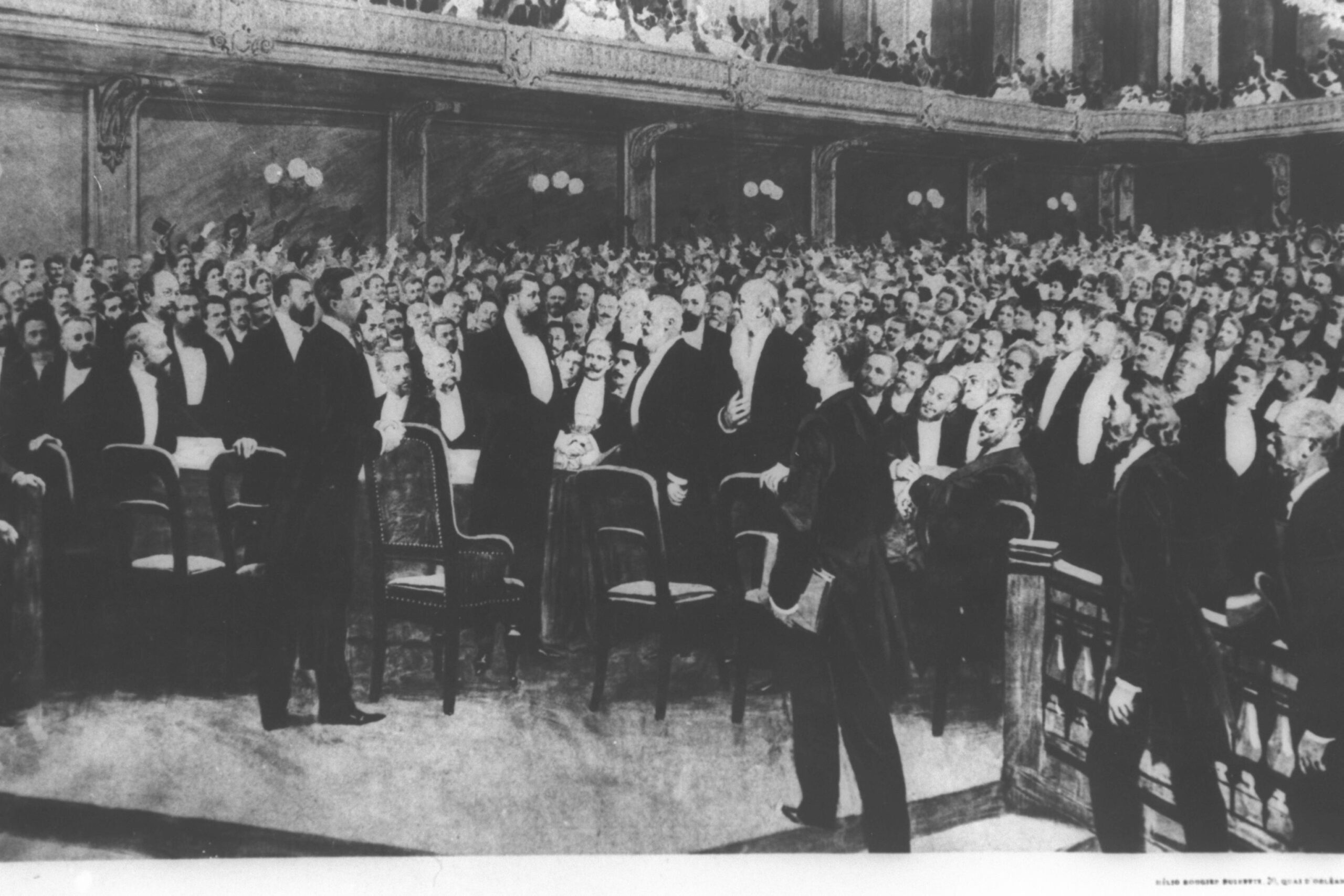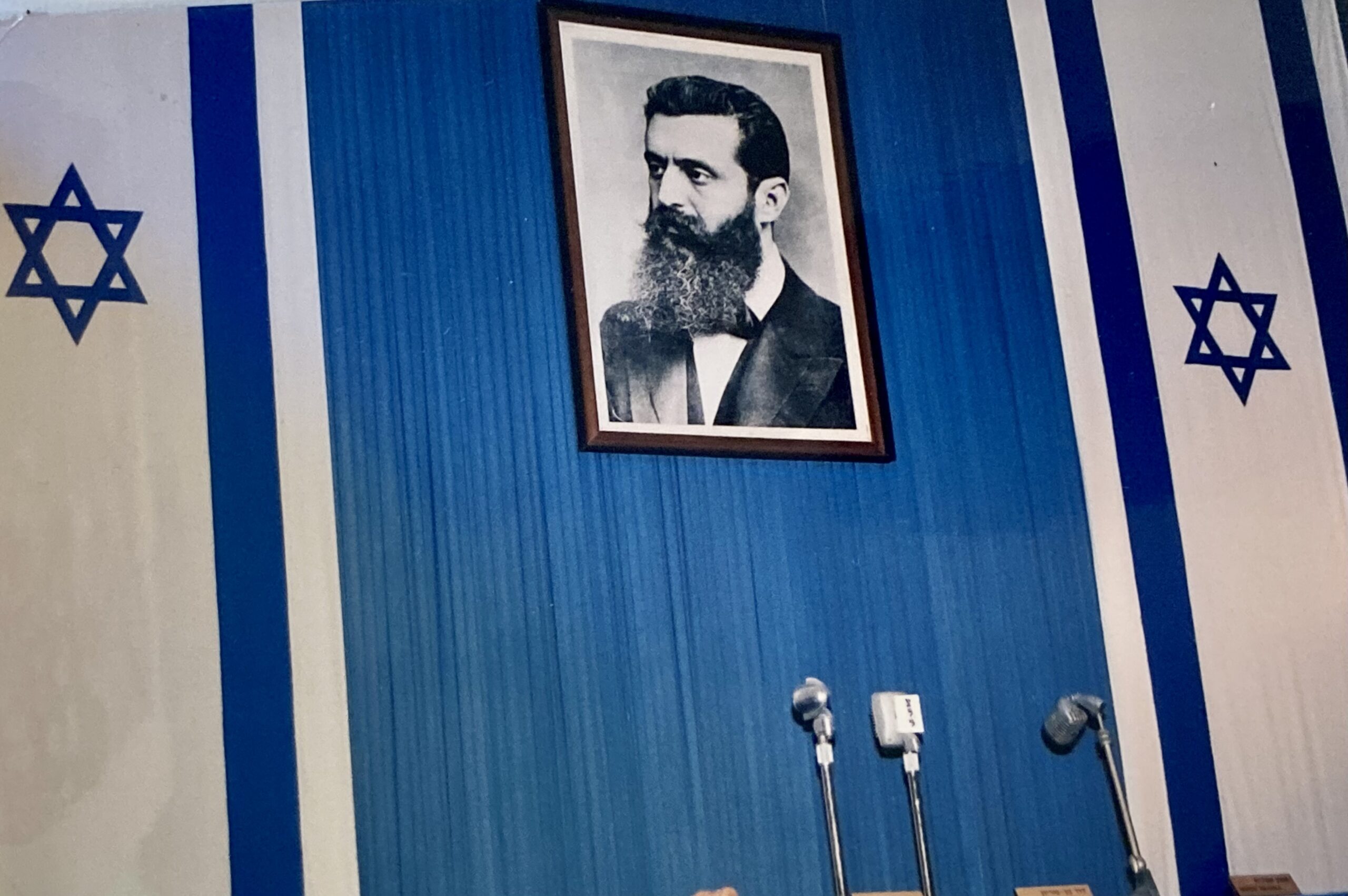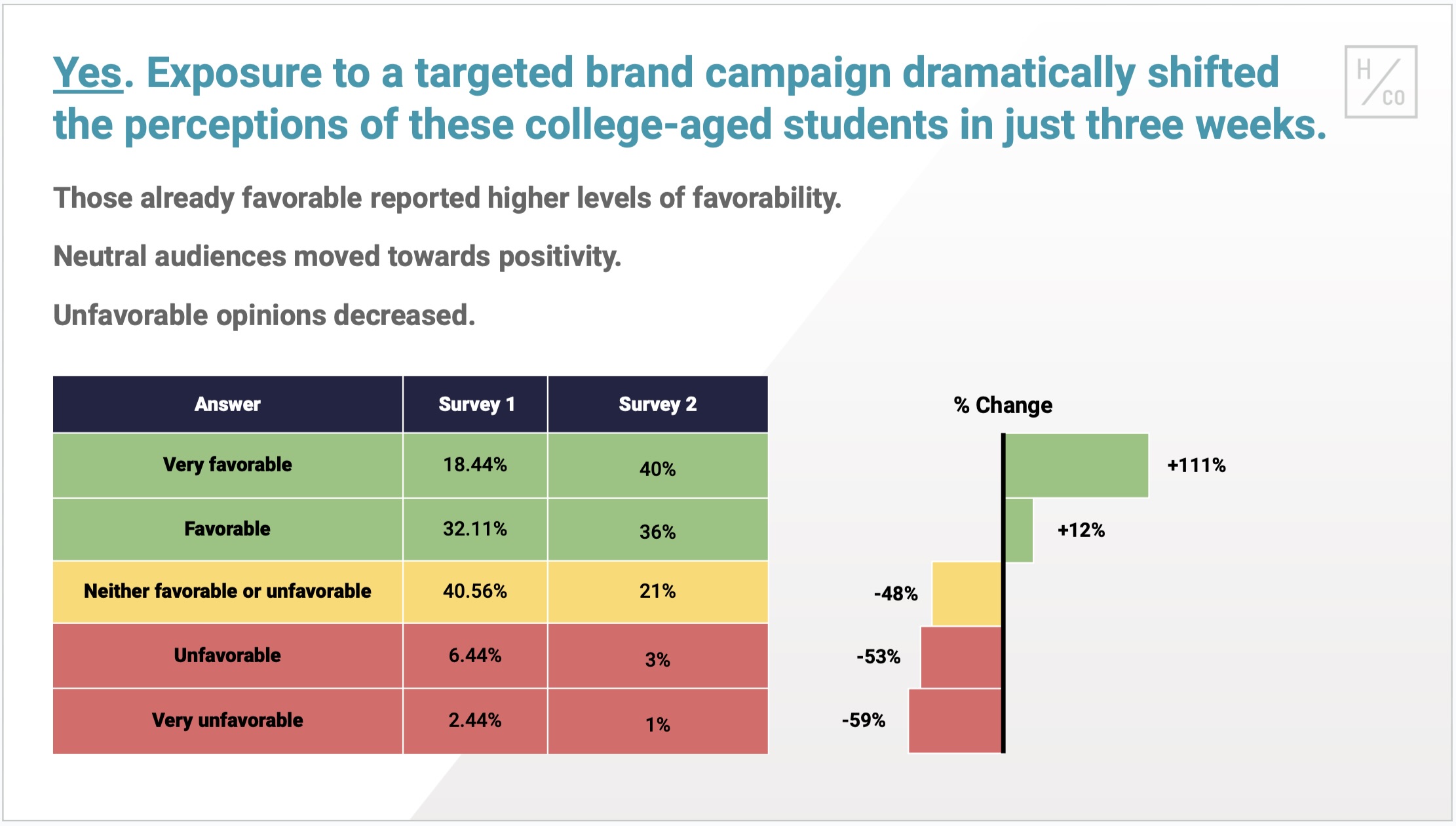One of the things I love most about being Jewish is the poetic storytelling in our traditions that always speaks to the destiny of a better future — and our role in it.
Yet it can be easy to forget that in our more recent history, Jewish visionaries and political leaders used the power of narrative in a far more proactive fashion to propel forward even the idea of establishing the State of Israel.
In 1853, Avraham Mapu’s novel, The Love of Zion, struck a chord with Jews about the real possibility of returning to our ancient homeland — and soon.

Nearly 50 years later, another epic storyteller, Theodor Herzl, pushed the Jewish People to take an epic leap. Herzl was a playwright, author and journalist who wrote The Jewish State in 1896. Just 100 pages, it was translated into seven languages. One year later, Herzl convened the First Zionist Congress in Switzerland. And a half-century after that, in 1948, the story he had long been telling came true when Israel declared its independence.
Because of the imagination and bold action taken by earlier Jewish generations — and the scores of valiant IDF service members who’ve repeatedly been forced to fight and win unwanted wars — today more than seven million Jews live in Israel. And on this Yom Ha-atzmaut, Jews the world over are celebrating Israel’s 75th anniversary as the official State of the Jewish People.

Yet Jews know all too well that we seldom have the luxury of celebrating for very long. Even as this Diamond Jubilee plays out in 5783, newly reported attitudes about Jews and Israel among Next Generation Jews (adults between the ages of 18 and 40) pose real perils for our future
In 2020, Pew Research Center revealed that when 18- to 29-year-old American Jews were asked how much being Jewish mattered to them, 67 percent answered “very” or “somewhat important” — compared with 82 percent of Jews over the age of 65. On the related question of feeling connected to Israel, 48 percent of the younger cohort said that they felt “very/somewhat attached to Israel,” as opposed to 67 percent of those over 65.
Just as troubling, a poll in 2022 from the American Jewish Committee reported that 23 percent of millennial Jews in the U.S. confirmed that “the anti-Israel climate, on campus or elsewhere, has forced me to hide my Jewish identity.”
These numbers represent no less than an existential threat to the Jewish People: a Next Gen that is less and less connected to Israel and their own Jewish identity — especially in the diaspora.
The dual danger of this growing trend is:
- A decrease in the membership of our Tribe, where strength in numbers is a constant imperative.
- Fewer future public voices and decision-makers who understand the importance of Israel and care enough to champion its cause.
It is axiomatic that the viewpoints of young people are affected by those of their peers. It has ever been thus. And the data tell us that in order to shape the way that young Jews feel about Israel, we must influence the way that the overall Next Gen feels about it — Jews and non-Jews.
Fortunately, because of the social media revolution, we can now communicate with precisely segmented audiences on an unprecedented scale. And the content we share can have immensely positive impacts on members of the Next Gen when it comes to how they feel about Israel — but only if the message is appealing. Only if we work to understand their passion points and then show them how those interests directly connect with the plethora of amazing things that Israel has to offer. “Cool” is contagious.
Conversely, if our message is narrowly limited to a constant defense of Israel’s right to exist and/or its politics, the medium doesn’t even matter anymore. Young minds are already tuned out.
At Vibe Israel, we have channeled this principle into a digital strategy that taps into the interests of social media influencers. We’ve hosted dozens of these influencers on tours of Israel — customized to what they and their followers are interested in — and the experience connects. The online sharing that these folks have done upon returning to their home countries has generated more than one billion positive mentions on social media since 2011.
Last year, we learned even more about the potential of this strategy when we launched a pilot digital campaign targeted at non-Jewish college students in three major cities: Atlanta, Miami and San Francisco. Partnering with digital strategy consultant HausCo, we deployed existing Vibe video and other content we had created onto Facebook and Instagram for three weeks. We also partnered with market insights leader Qualtrics to analyze the results.
While gathering data at the start of the campaign, Qualtrics reported that 32 percent of respondents were “favorable” toward Israel, while an additional 18 percent were “very favorable.” Importantly, a full 40 percent felt neither favorably nor unfavorably; they were basically indifferent.
After three weeks and $30,000 worth of positive posts about Israel, those “favorable” and “very favorable” numbers jumped to 36 and 40 percent, respectively. This means that half of the 40 percent who were originally indifferent toward Israel gained a more positive perspective. It is that 40 percent of the Next Gen which represents a massive sweet spot of open minds whom we can effectively communicate with.

The campaign did not achieve these weighty shifts in opinion by trying to persuade anyone about Israel’s politics or government. These young people were moved through consuming stories about Israel’s unique offerings in areas that already appeal to them: music, cuisine, beaches, tech, nightlife, art, social innovation … it’s a long list.
The social media revolution is akin to a new Wild West in that it is a totally open digital playing field. If Israel isn’t building its own brand by consistently projecting its competitive advantages to members of the Next Gen who are willing to absorb and decide for themselves, then we will be leaving them to consider only the unflattering — and often inaccurate — representations of Israel that show up online. Every day. Every hour.
We cannot let this happen — and we don’t have to. We can strategically tell the most authentically attractive stories about Israel and target them to our audience through a digital “marketing mix.” At the same time, we can track, measure and continually tweak each tactic in the mix:
- Influencer Marketing
- Content Marketing
- Social Media Campaigns
- Paid Social Media Advertising
Each of these components must be carefully crafted and coordinated with one another to work to maximum effect. It adds up to a comprehensive strategy that we have laid out in a new book called Ethical Tribing.
Sometimes the solution to a problem sits right there at its core, fully visible and waiting to be set into motion. But without a plan of action, resources and leadership, most great ideas just sit idle.
Long before Israel grew into the strong, proudly independent nation that it is today, earlier generations had to envision the future and tell great stories to make it come true. They showed us what was possible.
Now, it is our turn.
Michael Golden is a national award-winning journalist and cofounder of the One Million Degrees community college project. He and Vibe Israel founder Joanna Landau are authors of the new bestseller ETHICAL TRIBING: Connecting the Next Generation to Israel in the Digital Era.


